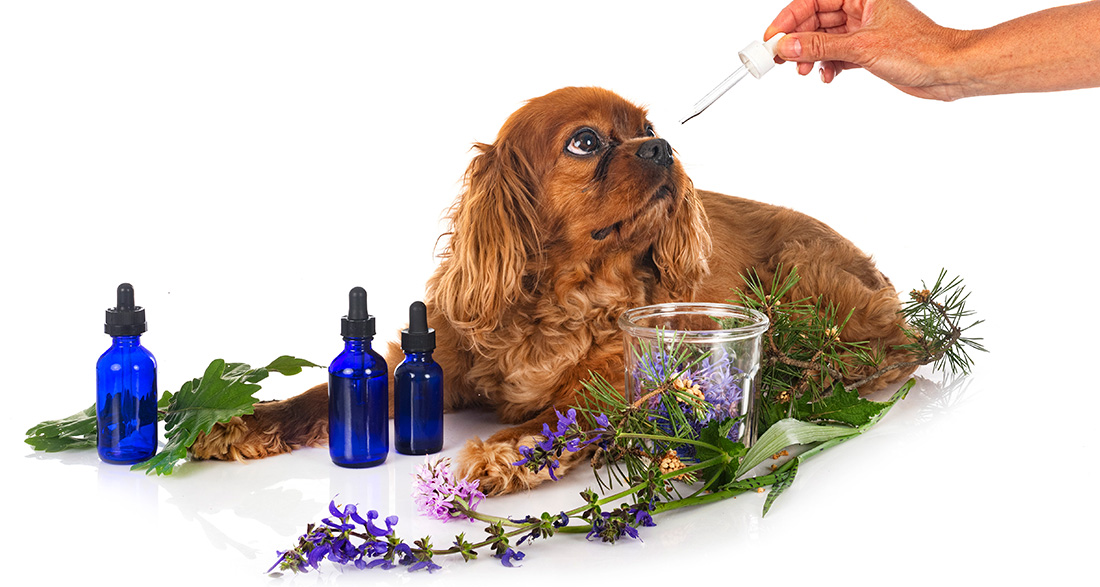Essential oils can support your dog’s well-being and be used for training purposes. Learn which ones are beneficial for dogs and how to apply them.
Essential Oils for Dogs – Which Ones Are Good?
Essential oils, just like with us humans, can have a soothing and relaxing effect on your four-legged friend. However, not all essential oils that are good for us bipeds should be used for your dog. Therefore, it is crucial to always use them only in consultation with veterinarians, behavior therapists, or dog trainers.
In practice, the following essential oils are often used for dogs:
- Lemongrass
- Eucalyptus
- Lavender
- Chamomile
- Valerian
- Tea tree

Effects of Essential Oils on Dogs
Why are essential oils used for dogs? Like us humans, these aromatic oils have different effects on our four-legged companions. For instance, lavender can have a calming effect on your dog and is often used for conditioned relaxation. Other applications include:
- Supporting skin health (e.g., in chronic skin conditions, recurrent infections)
- Supporting a healthy digestive system
- Ear infections
- Healing support for wounds
- Behavioral conditioning with scents
- Relaxation and calming in stressful situations like traveling
- Natural tick repellent
If you want to treat your dog and support training, you can also use delicious and high-quality snacks. Thanks to our extensive selection and premium ingredients, you’ll surely find your furry friend’s new favorite treat.
Different Application Methods
Contrary to expectations, there are various ways to apply essential oils. The pure drops of oil are rarely administered as the substance is often too intense and needs to be diluted first.
For internal use, such as ingestion, suppositories, capsules, or inhalation are recommended after consultation with veterinarians. For external use, ointments, sprays, drops, or shampoos are suitable.
It is essential not to administer essential oils to your dog arbitrarily or start aromatherapy without proper knowledge. Familiarize yourself beforehand and seek advice from experts in the field. Only then can you support your dog with essential oils, harness their full effectiveness, and exclude health risks.

Considerations for Usage
Since our pets have a different metabolism, they may not tolerate some aromatic substances as well as we do. A scent that you enjoy might contain a compound that your dog cannot metabolize well or at all. Incorrect application or dosage of essential oils can lead to health consequences or even poisoning. To avoid this, always consult with health or training experts for dogs before using essential oils on your pet.
Additionally, your dog has a very keen sense of smell and perceives odors much more intensely than you do. Therefore, always apply aromatic substances in diluted form. To find out if your dog even likes a scent, you can initially drop a single drop on a paper towel and let them sniff it from a sufficient distance.


